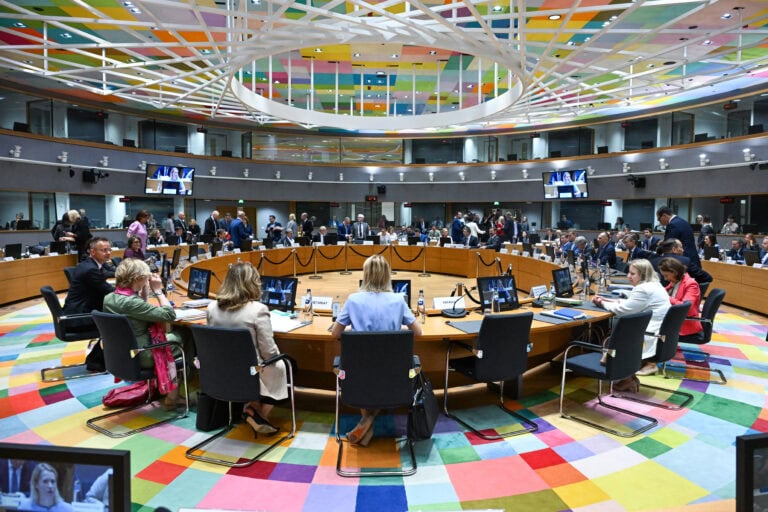The European Union has welcomed a new European Parliament, reappointed Ursula von der Leyen as President of the European Commission and is now finalising the selection of the new College of Commissioners. This transition represents more than just a change in leadership; it’s an opportunity to reflect on and reaffirm the fundamental principles underlying the EU’s role on the global stage. The world is grappling with multiple, interconnected crises — from ongoing and expanding conflicts and the escalating impacts of climate change to environmental degradation, food insecurity, pandemics, and large-scale displacement of millions of people.
At ACT Alliance EU, we believe that it is critical to ensure that development cooperation and humanitarian assistance remain key components of the EU’s external actions, addressing global challenges and building a more just and sustainable world. This requires reversing the current trend within the EU and its member states of cutting development and humanitarian aid budgets. More importantly, it requires a return to the foundational principles outlined in the EU’s core documents.
The Treaty on the European Union (TEU) and the European Consensus on Development are clear: development cooperation is not just important; it is essential. These key documents emphasise that the primary objective of EU development efforts is the reduction and, ultimately, the eradication of poverty. Equally, the EU’s commitment to providing swift and effective humanitarian action is guided by principles of humanity, neutrality, impartiality, and independence, with a focus on needs-based responses to crises. The aim is to save lives, alleviate suffering, restore livelihoods, and protect human dignity in response to conflicts, natural disasters, and other emergencies.
The EU’s policy, as enshrined in the treaty, goes beyond an ‘aid’ logic; it aims to foster long-term stability and resilience in partner countries, building the foundations for sustainable development and inclusive societies. The European Consensus on Development explicitly outlines how development cooperation and humanitarian assistance are vital for addressing global challenges such as poverty, inequality, and environmental sustainability. It stresses that these efforts are interconnected and must be part of a coordinated global approach to achieving the Sustainable Development Goals (SDGs), and the goals of the Paris Agreement.
This is not just about values; it’s about ensuring coherence and effectiveness in addressing the complex challenges our world faces today — from poverty to conflict to environmental degradation. Article 21 of the Treaty on European Union reinforces this by stating that the EU’s external actions, including development cooperation, must be guided by principles of democracy, the rule of law, and respect for human rights.
As the EU progresses into this political cycle, reaffirming these principles is crucial. At ACT Alliance EU, we will continue to advocate for external policies and action that uphold the EU’s commitment to its values: to ensure that poverty reduction and eradication, principled humanitarian assistance, and needs-based crisis response remain at the heart of the EU’s approach to global challenges.
This is a time for reflection, but also for renewed commitment. The challenges we face are immense and require coordinated, collective responses. The EU has long been a leader in addressing these challenges, and as new Commissioners take office, it is more important than ever to reaffirm the EU’s foundational principles to guide its actions effectively on the world stage.



